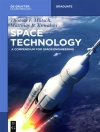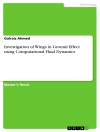This book presents a comprehensive overview of the recent advances in the domain of optimal guidance, exploring the characteristics of various optimal guidance algorithms and their pros and cons. Optimal guidance is based on the concept of trajectory optimization, which minimizes the meaningful performance index while satisfying certain terminal constraints, and by properly designing the cost function the guidance command can serve as a desired pattern for a variety of mission objectives. The book allows readers to gain a deeper understanding of how optimal guidance law can be utilized to achieve different mission objectives for missiles and UAVs, and also explores the physical meaning and working principle of different new optimal guidance laws. In practice, this information is important in ensuring confidence in the performance and reliability of the guidance law when implementing it in a real-world system, especially in aerospace engineering where reliability is the first priority.
Table of Content
Introduction of Optimal Guidance.- Optimality of Error Dynamics in Missile Guidance.- Three-Dimensional Optimal Impact-Time-Control Guidance Law.- Gravity-Turn Assisted Optimal Guidance Law.- Observability-Enhancement Optimal Guidance Law.- Optimal Proportional-Integral Guidance Law.- Energy-Optimal Waypoint-Following Guidance Law.- Conclusions.












